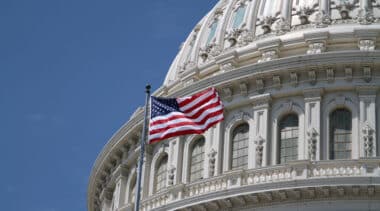Geoffrey Lawrence is research director at Reason Foundation.
Lawrence has been a financial executive in both the public and private sectors and has served as chief financial officer of publicly traded, growth stage, and startup manufacturing and distribution companies. He was CFO of Players Network, the first fully reporting, publicly traded marijuana licensee to be listed on a U.S. exchange, CFO of C Quadrant, a startup manufacturer and distributor that was subsequently sold to Lowell Farms (LOWL), CFO of Apex Extractions, a manufacturer and distributor based in Oakland that he helped take public, and, most recently, CFO of Claybourne Co., a top-3 flower brand in California by market share. Through these roles, Lawrence raised capital, planned capital expenditure, prepared financial forecasts, implemented systems for accounting and inventory control, designed internal control processes, managed monthly and quarterly closings and reporting, managed compliance with state and local regulations, negotiated contracts, and prepared filings with the U.S. Securities and Exchange Commission.
Lawrence also served as a senior appointee to the Nevada Controller’s Office, where he oversaw the state’s external financial reporting. Prior to joining Reason Foundation in 2018, Lawrence had also spent a decade as a policy analyst on labor, fiscal, and energy issues between North Carolina’s John Locke Foundation and the Nevada Policy Research Institute.
Lawrence is additionally the founder and president of an accounting and advisory firm with particular expertise in the licensed cannabis industry and public markets.
Lawrence holds an M.S. and B.S. in accounting from Western Governors University, an M.A. in international economics from American University, and a B.A. in international relations from the University of North Carolina at Pembroke. He lives in Las Vegas with his wife and two children and enjoys baseball and mixed martial arts.
-
Cannabusiness lawsuit highlights need for Congress to clarify federal treatment of marijuana
Without reform, lawsuits like this may force federal courts toward decisions that destabilize existing state markets or that effectively go around Congress.
-
What is 7-OH and why did the FDA seize this potentially life-saving substance?
There’s no real basis to conclude that the products are dangerous. In fact, there’s far more evidence that they may help people overcome opioid addiction.
-
Proposed Model Policy: “Veterans Mental Health Innovations Act”
This model legislation is intended to authorize state ibogaine research and participation in a larger multistate effort to complete a supervised clinical drug trial.
-
Model legislation would authorize groundbreaking research into ibogaine for mental health
Growing research has demonstrated the promise of ibogaine in treating a wide range of intractable conditions, which could benefit veterans.
-
Harm reduction: An evidence-based approach to the drug war
Harm reduction includes proven tools like naloxone distribution, syringe service programs, fentanyl test strip access, and supervised consumption sites.
-
The truth about marijuana, mental illness, and violence: A review of Alex Berenson’s claims in ‘Tell Your Children’
Marijuana legalization appears to reduce the prevalence of violent crime and suicide.
-
Federal court strikes down Oregon law requiring marijuana licensees to sign labor peace agreements
The judge concluded that the law would usurp powers reserved to a federal agency and that it would violate the free speech rights of marijuana business owners.
-
Drug decriminalization in Oregon: Measure 110’s impacts compared to other countries’ systems
A review of the data does not indicate any massive shift in offense rates or criminal behavior as a result of Measure 110.
-
Iowa House File 978 would regulate psilocybin access and benefit veterans’ mental health
House File 978 would create a regulated program to access psilocybin, which has shown promise in the treatment of neurological and mental health conditions.
-
Oregon House Bill 2387 would improve psilocybin services
The bill includes important regulatory improvements to Ballot Measure 109, which created the state’s psilocybin services market.
-
Nevada Assembly Bill 307 would change how cannabis is taxed
The best means of displacing illicit goods is establishing a tax and regulatory environment that allows legal goods to compete on price.
-
Optimal framework for the state regulation of hemp cannabinoids
The hemp cannabinoid market has grown into a $3 billion interstate industry.
-
New Mexico Senate Bill 219 would regulate medical psilocybin access
The Medical Psilocybin Act would create a regulated system to allow patients with qualifying conditions to access and use psilocybin.
-
Legislative approaches that could improve access to psychedelic-based medicine
Psychedelics-assisted therapy represents a promising treatment for many mental health issues.
-
New Mexico’s proposed labor peace mandate violates federal law
House Bill 331 would unconstitutionally usurp the exclusive jurisdiction of the National Labor Relations Board to govern private-sector labor relations.
-
Legalizing psilocybin access in Arizona would benefit mental health
Arizona Senate Bill 1555 would create a regulatory framework for limited, legal access to therapeutic psilocybin services.
-
Lower cannabis taxes can bolster Alaska’s legal market
The tax reduction proposed in Alaska Senate Bill 73 could induce more marijuana transactions to shift to the legal market.
-
Model legislation for optimal state regulation of hemp cannabinoids
Reason Foundation’s model legislation offers a clear and practical framework for states seeking to regulate adult-use hemp cannabinoids effectively.


















